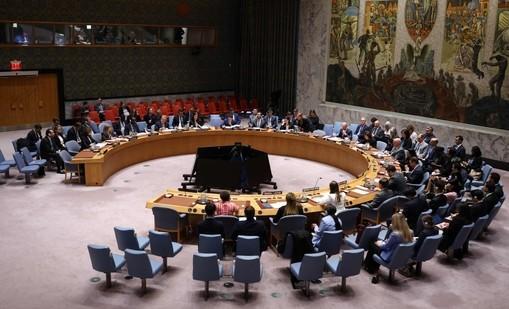
Was LeT involved? UNSC asks Pak on J&K attack, refuses to accept ‘false flag’ claim
In a significant development, the United Nations Security Council (UNSC) members have refused to accept Pakistan’s “false flag” narrative on the recent Pahalgam attack in Jammu and Kashmir, reports said. The UNSC members also questioned whether the terror outfit Lashkar-e-Taiba (LeT), based in Pakistan, was likely to be involved in the attack.
The Pahalgam attack, which took place on October 11, left several tourists injured, including foreigners. The attack has sent shockwaves across the region, and the international community has been closely monitoring the situation.
Pakistan, in an attempt to deflect blame, had initially claimed that the attack was a “false flag” operation carried out by India to discredit Pakistan. However, the UNSC members did not buy this narrative, sources said.
According to reports, some UNSC members also brought up the targeting of tourists on the basis of religion, highlighting the communal nature of the attack. This implies that the attack was not just an ordinary terrorist attack, but one that was specifically designed to harm a particular community.
The UNSC meeting was called by Pakistan, but it seems that the country’s efforts to spin the narrative failed to convince the other members. The refusal to accept Pakistan’s “false flag” claim is a significant setback for the country, which has long been accused of harboring and financing terrorist groups, including LeT.
LeT, an anti-India terrorist outfit, has been responsible for several attacks on Indian soil, including the 2008 Mumbai attacks that killed over 160 people. The outfit has strong links with Pakistan’s intelligence agency, the Inter-Services Intelligence (ISI), and has been accused of receiving funding and support from the Pakistani government.
The UNSC’s questioning of LeT’s involvement in the Pahalgam attack is significant, as it implies that the international community is aware of the outfit’s history of violence and its connection to Pakistan. The UNSC’s refusal to accept Pakistan’s “false flag” narrative also suggests that the international community is not buying into Pakistan’s attempts to deflect blame.
The Pahalgam attack has sparked widespread outrage across India, with many calling for stronger action against Pakistan and its terrorist outfits. The attack has also led to increased tensions between India and Pakistan, with both countries trading barbs over the incident.
The UNSC’s refusal to accept Pakistan’s “false flag” narrative is a significant development, as it implies that the international community is not willing to give Pakistan a free pass on the issue. The UNSC’s questioning of LeT’s involvement also suggests that the international community is aware of the outfit’s history of violence and its connection to Pakistan.
In the aftermath of the Pahalgam attack, India has called for international pressure on Pakistan to stop supporting and funding terrorist outfits like LeT. The Indian government has also accused Pakistan of using terrorism as a state policy to target India and has asked the international community to condemn Pakistan’s actions.
The UNSC’s refusal to accept Pakistan’s “false flag” narrative and its questioning of LeT’s involvement are significant developments in the ongoing saga of terrorism in Jammu and Kashmir. The international community’s refusal to buy into Pakistan’s narrative is a significant setback for the country, and it is likely to increase pressure on Pakistan to take concrete action against terrorist outfits like LeT.
As the situation in Jammu and Kashmir continues to unfold, it is clear that the international community is not willing to give Pakistan a free pass on the issue. The UNSC’s refusal to accept Pakistan’s “false flag” narrative and its questioning of LeT’s involvement are significant developments that are likely to have far-reaching consequences for the region.
Source:



